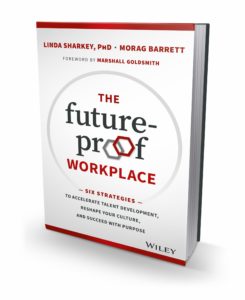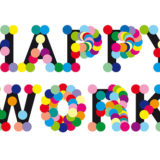
 Many managers would do well to quit their MBA program, (and quit Management by Bossing Around) to focus on their relationship skills. Maybe that manager is you.
Many managers would do well to quit their MBA program, (and quit Management by Bossing Around) to focus on their relationship skills. Maybe that manager is you.
But I’m not a people person!
Society is in a transition phase in terms of how relationships are valued in the workplace. The percentage of workers who come from the traditional “business is business” mindset is still large. However, as they approach retirement age the next generation is stepping forward, and the pace of change will accelerate.
The future of work will center on the fluid workforce. This fluid workforce consists of teams and individuals who can come together rapidly, build trust, enable information sharing, and collaborate to deliver a successful result.
Yes, technology plays a major role in team communication, but the more things change, the more things stay the same. Business is personal. If you believe your company or career can rely on technology to minimize the importance of relationships, you’re in for a future shock.
Colleagues or friends?
In today’s hyper-connected world it’s increasingly difficult to differentiate between “friends” and “colleagues.”
My question is, Why differentiate?
We spend more than forty percent of our time with work colleagues. From studies on the human brain we know that our instinct is to put up defenses with people we don’t know—unless of course they seem “like us.” But in the global workplace this tribal attitude will only hold us back.
Building relationships and connections quickly, and paying attention to how we bond so that everyone is included, is crucial to future-proof your career.
 I wrote about the importance of business relationships extensively in my first book Cultivate. The Power of Winning Relationships. In researching our new book The Future-Proof Workplace, Dr. Linda Sharkey and I identified Relationships as one of the six critical factors of change transforming the workplace.
I wrote about the importance of business relationships extensively in my first book Cultivate. The Power of Winning Relationships. In researching our new book The Future-Proof Workplace, Dr. Linda Sharkey and I identified Relationships as one of the six critical factors of change transforming the workplace.
Increasingly, the workplace consists of the traditional employee, as well as contractors and independent consultants. In many organizations independent workers are still kept at arm’s length. Training, social events, and access to information are usually unavailable to the flexible worker. The result is a segment of “have-nots” and potential “will nots.”
With predictions showing that more than 40% of the workforce is likely to be an independent worker by 2020 the ability to quickly form respectful, enjoyable, and productive workplace relationships is a key for career survival.
A freelancer may only work with you for a certain project cycle and then move on to another opportunity. But keeping the relationship, regardless of where the person goes, is essential.
In the 21st Century, who you know and what you know is much more important than the formal role you play.
Relationship with our network
Collecting “likes” and random endorsements is not networking. While worn as a badge of honor, simply having a large number of connections is not the same as having an effective network.
Lynda Gratton, Professor at London Business School, says this brilliantly: in the future we will all need to “stand out from the crowd while at the same time being part of the crowd or, at least, the wise crowd.”
She goes on to describe a future where we will all need to be able to stand out with mastery and skills while simultaneously becoming part of a collection of other masters who together create value. A failure to do so will likely result in us being on our own, isolated and competing with thousands of others, with no possibility of leveraging what a crowd brings.
In the past, career success was traditionally achieved through personal drive, ambition, and skill. More and more, success will be achieved through the subtle but high-value combination of mastery and connectivity.
Connect or be Disconnected
In the “new work order” recruiting is both digital and social, personal and impersonal. It’s not only who we know that’s important, it’s who knows us. And who can find us that will be a key determinant of our future success.
Here’s the harsh reality: you must intentionally connect or risk becoming disconnected.
Increased connectivity means we can share work and simplify our approaches. The relationships we build with others is how we avoid becoming isolated, fragmented, and at worst obsolete.
Most of all, we must recognize that we have no excuse for not enjoying the kind of working relationships we aspire to.
Every person can learn to cultivate winning relationships at work—even if you don’t think you’re a people person.
For your company:
- Have you relied on technology and the latest gadget instead of nurturing personal relationships?
- Have you looked at your policies and practices to see which are helping to build relationship or which are continuing to maintain the tribal “them and us” attitudes of the past?
For your career:
- As you consider the tasks you’re working on right now, how can you take a more relationship-oriented approach to your work?
- Which workplace relationships are stressing you? What proactive steps can you take to improve those relationships?











